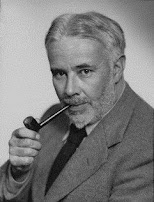Covid-19 presents us again with the ‘problem of evil’: why does God permit evil? For some this question leads away from faith, into atheism. It’s a quandary which John Lennox, our best British apologist attempts to answer in his book, Where is God in a Coronoavirus world?
My own feeling is that there is no need for the existence of evil, or suffering, to undermine faith. It’s been said that hanging onto belief, faced with indescribable evil, is an emotional response, holding onto a crutch because one cannot face the meaninglessness of the universe. But the rejection of faith is also an emotional response, not a logically necessary one.
The British philosopher, C. E M. Joad made the opposite journey into Christianity. Faced with the evil of Nazism, he realise that evil itself demanded the existence of a countervailing force, of absolute good. Initially, this gave him a Manicheeist model, of two equal opposing deities. But C. S. Lewis persuaded him that only a sovereign God could ground his hope for victory, and he became a Christian.
But Joad’s case does not automatically help us with Coronavirus. His response was to ‘radical evil’, not ‘natural evil’. We may engage combatively with human evil, because it is clearly not God’s fault. But what about disease?
Francis Schaeffer’s interaction with, French existentialist philosopher, Albert Camus supplies a clue. In his novel, La Peste, Camus has a priest preach against opposing the plague, because it is must be God’s will. It is the atheist doctor who takes practical steps to deal with the epidemic. Although the priest eventually volunteers in the hospital, it is against his theology, and only part of a human existentialist response to suffering. Schaeffer, however, states that illness is not part of God’s original intention, but abnormal, a result of the Fall; and so it is not only permissible, but required, to fight against it, if we follow the Christian God.
But we are not vouchsafed a philosophical answer to the problem of Covid. The Bible is not a speculative book. Evil, suffering, Covid-19, constitute a call-to-arms, a summons. They demand a response. To that extent the existentialist is correct; a decision is required. Some will march toward the sound of the guns, others will run away. Jesus opens up two aspects of the needed response: the reflective internal and the active external.
In Luke 3.1-5, a passage picked up by Lennox, both human and natural evil are dealt with: the massacre of pilgrims by Herod, and the collapse of a tower, killing many. Jesus indicates they did not die because of their sin, but challenges his listeners to introspection: to examine their own sinful lives, lest they also perish. In John 9.1-4, faced with a man born blind, Jesus again says it was not because of sin, but (in this case) an opportunity to do God’s ‘works’. Suffering requires us to join God in his work to alleviate pain. This is our challenge during Covid-19: evil demands action.








No comments:
Post a Comment